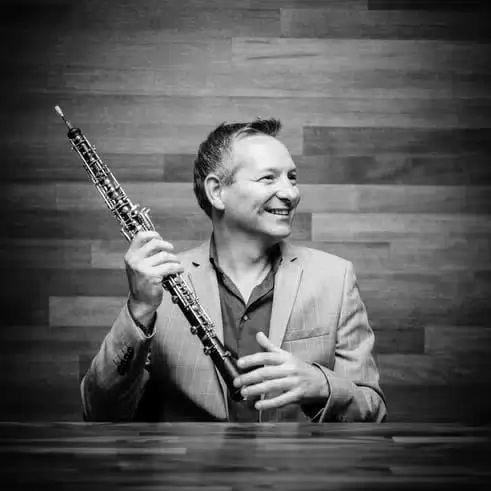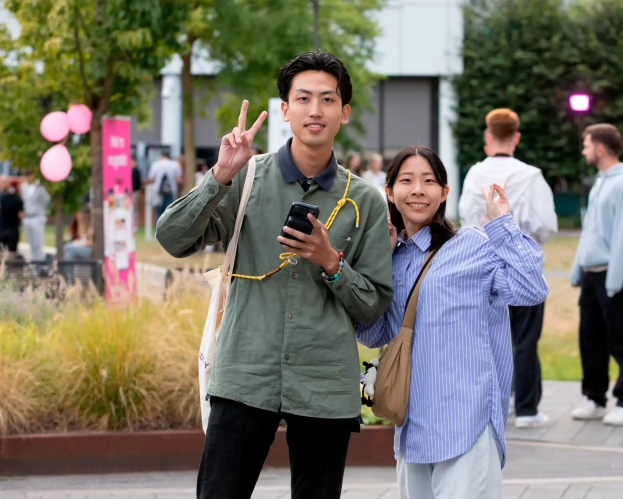
Oliver Boekhoorn
Biography
I love challenges. Otherwise, I would not be a member of Calefax Reed Quintet. Playing in this celebrated group demands a different way of playing the oboe than normally taught. What I do is considered by many other oboists as impossible. It took a couple of years before finding the way of playing that made it possible for me to make it to the end of a concert without being completely spent half way through.
More than is the case with the other instruments, the reed on the oboe is one of the biggest stress factors. But it may never become an excuse. It is a question of mentality. Oboe playing is learning to trust, more than coping with fear. Trusting in yourself. Playing a little bit of oboe simply does not exist, you must give each note all you’ve got and play 120%, 150%.
At conservatory they thought that I did far too many things besides playing the oboe. And I attended the conservatory for a long time, starting at thirteen. Mainly at the Royal Conservatory in The Hague, and master at the Conservatory of Amsterdam. Photography, Recording technique, sports, playing in many different ensembles from classical to folk and jazz/ improvised. Everything that I have done has made me into the person I am now. Nearly everything I have done in the past, could be combined in my musical career. In my opinion playing the right notes as beautiful as possible is just a small part of being a musician, being an artist. Other skills and social skills and curiosity are maybe even more important. They will open the possibilities and podia where you can display your artistry.
I tend to enrich my oboe playing with trying to master other, mainly reed, instruments. Like duduk, tenora (a Catalan street oboe), baroque oboe and tin whistle. Besides that it’s great to play these instruments during concerts, they also help me to broaden the possibilities on the oboe. New fingerings, sounds and insights. It makes me more complete as a musician.
Music is one of the ways I express myself. I always try to get the very best out of the music and to play in the proper style. Not only in baroque music but also for example in folk music. Just like when I play Irish music with my little brother in Ireland. There is a carefree feeling about it. It’s not about the performance. In Ireland you sit down in a pub, you pick up your instrument, in my case the tin whistle or the oboe, and you play. At the end you say, wow, guys that was great! And that’s it. It’s a part of life. You don’t need to hold up a sign. Just be yourself, it doesn’t get any better than that.
In music it’s important to find your own way in it. That might be playing in a orchestra but for others it might be chamber music or music theatre or any other genre. I believe that it will work if you believe in it. If you do, your audience will too!
Oliver is playing with Calefax since 1997, recorded 20 cd’s with the ensemble and has played more than 1600 concerts in over 40 countries around the globe. He gave masterclasses at conservatories and Universities in for example the U.S., The U.K, Japan, Hungary and Ireland. Calefax reinforces its pioneering role by publishing sheet music of their own arrangements under the name Calefax Edition. This has been one of the catalysts for the creation of many reed quintets inspired by the Calefax model, from Argentina to New Zealand and from the United States to Europe. Calefax passes on its unique manner of working and musical experience to new generations.
 Foto: Marco Borggreve
Foto: Marco Borggreve

